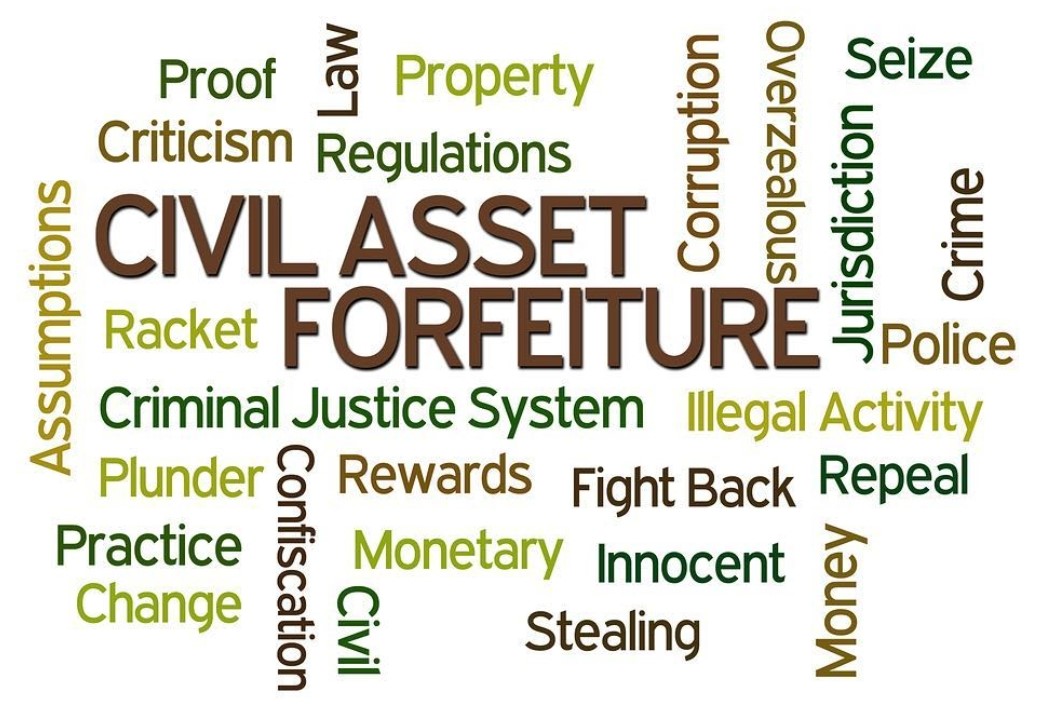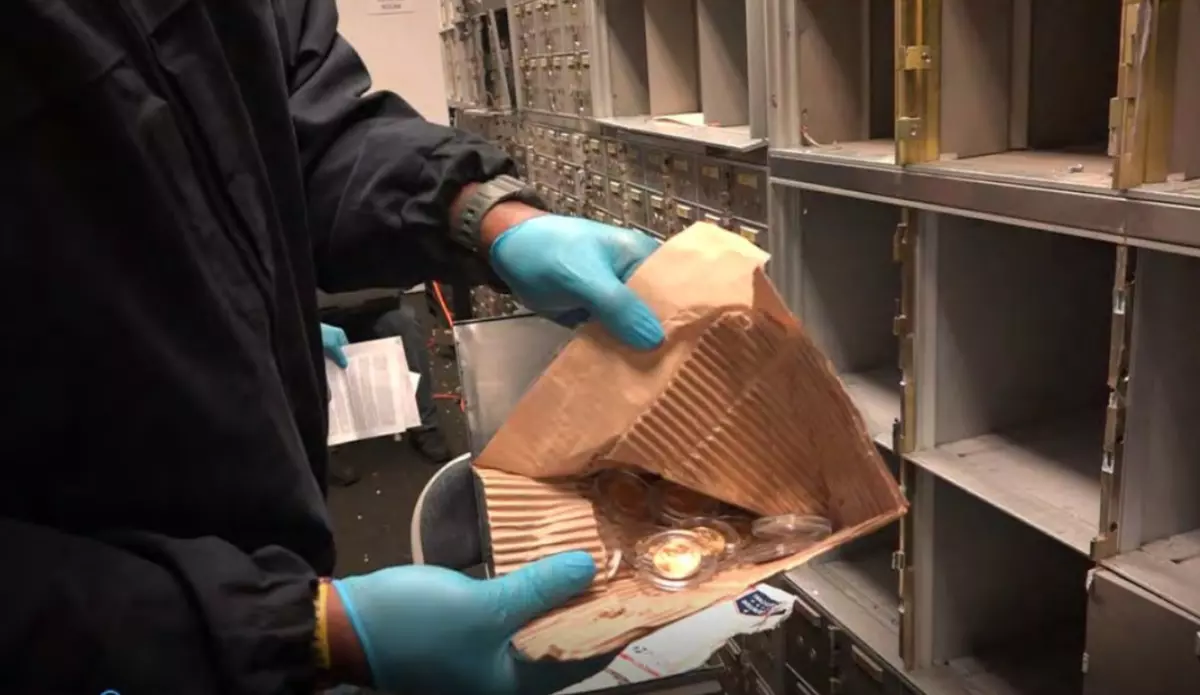This Week’s Civil Forfeiture Outrage (Fourth in a Series)
Here’s a fascinating story in the Arizona Republic about an appeals court hearing earlier this week. Reporter Perry Vandell’s account of that hearing isn’t so much informative as educational. His article provides several excellent lessons about the real world of civil forfeiture—in particular, the interactions of abstract legal principles on real people’s lives.
Before Vandell’s article describes the hearing in any detail, he provides a nice summary of civil forfeiture’s central problems:
Civil forfeiture has drawn sharp criticism over the years as it has often allowed law enforcement to seize assets like money and property without needing to charge the owners with a crime—much less obtain a conviction. Supporters of civil forfeiture reform often argue that the cost to hire an attorney and attempt to get the assets back is often more expensive than the seized assets. Some say law enforcement agencies being able to collect and spend money from the assets they seize then creates a financial incentive to seize as much as possible.
The main issue of the hearing: Should the police have taken $39,500 from Jerry Johnson, who was carrying that sum of currency through the Phoenix airport? It depends on whose narrative is correct.
Johnson’s narrative: The reason I flew from North Carolina to Arizona was to buy a third truck for my shipping company. One of the trucks offered in a car auction in Phoenix looked like it was a good prospect. I chose to travel with $39,500 in cash to avoid the hassle of a large withdrawal from an Arizona bank, and I’ve seen articles that say that traveling with large amounts of cash is perfectly legal.
The county prosecutor’s narrative: We have no idea who owns this money, but we don’t think Johnson does. Our conclusion is based on three facts: He wasn’t sure exactly how much money he was carrying, he couldn’t show that the money came from his business bank account, and the money smells of marijuana.
Johnson endured a series of misadventures before ending up in appeals court. Phoenix police officers approached Johnson as he took possession of his luggage and asked him why he was carrying so much cash. One officer then accused Johnson of criminality, telling him he could either go to jail or waive his rights to the money. Johnson did not appreciate the consequences of signing the form—he was allowed to leave, but his money stayed in police custody. A trial court then found that it was more likely than not that Johnson was involved in crime and therefore ruled that the government should keep the money.
Johnson then appealed, with representation from the Institute for Justice. At the appellate hearing, he was opposed by a prosecutor from the Maricopa County Attorney’s Office.
The Arizona Republic article suggests that things didn’t go well at the hearing for the prosecutor, who argued there that Johnson doesn’t own the money and that nobody knows who does. One of the presiding judges responded sharply to the prosecutor when he emphasized (in the prosecutor’s view) a crucial fact: that Johnson didn’t know exactly how much cash he was carrying.
“I don’t know how much I have in my wallet,” Judge Swann replied. “Do you need to check it? Should I be worried that the police are going to come check it? Am I going to have to explain where I got it?”
The prosecutor also argued that the smell of marijuana on the money was an appropriate factor in its seizure. Judge Swann replied by noting that money, by its nature, moves from person to person—and therefore that smells on bills can prove very little. He added “It’s hard for me to imagine impregnating $40,000 with marijuana smell.”
Here’s what I found most interesting about the hearing, though: It appeared that the prosecutor was arguing that it was Johnson’s job to prove his innocence, not the state’s job to prove his guilt:
At one point in the hearing, the prosecutor argued that there are grave dangers in accepting people at their word that they lawfully possess the money they’re carrying. “All you would have to do is get a money mule who’s never going to disclose who the agent is and boom—he says it’s his and you’re stuck,” the prosecutor said.
It is difficult to tell from the newspaper story, but I think that, around this point, Judge Swann sarcastically responded, “I’m sorry if it seems harsh that the state should actually have to come forward with evidence before it takes people’s money away at the airport.”
After the hearing, Johnson’s lawyer highlighted what appeared to be an artful attempt by the prosecutor to force Johnson to bear the burden of proof, asking: “If Jerry’s not the owner—who is? And the government absolutely had no answer.”
Experienced lawyers know that it’s a fool’s errand to predict how a judge will rule based on how he behaves in court. Nonetheless, predicting judicial results based on courtroom behavior is a persistent temptation, and that temptation becomes even stronger when a judge becomes more and more outspoken. The Republic’s account of the hearing does not suggest that Judge Swann was coy or demure. At one point, he commented that civil forfeiture was “a very distasteful process.”
Perhaps the last word here should go to the previous possessor of the money, appellant Jerry Johnson. He said: “I would like to get my money back because the money is affecting my trucking business. I could use that money to still purchase a truck.” Notably, although the prosecutor made vigorous and repeated—although essentially hypothetical—claims about Johnson’s alleged criminal conduct throughout the hearing, he has never been charged with a crime.


![IFJ_7318-1920×1080[1]](https://rucci.law/wp-content/uploads/2023/12/IFJ_7318-1920x10801-1.jpg)



![854081161001_5616033620001_5616024865001-vs[1]](https://rucci.law/wp-content/uploads/2023/12/854081161001_5616033620001_5616024865001-vs1.jpg)
![20180903_d2c5ea2e-0888-57b3-b04a-ab689f32c70c_1[1]](https://rucci.law/wp-content/uploads/2023/12/20180903_d2c5ea2e-0888-57b3-b04a-ab689f32c70c_11.jpg)
![cashncuffs_1161x653[1]](https://rucci.law/wp-content/uploads/2023/12/cashncuffs_1161x6531.jpg)


